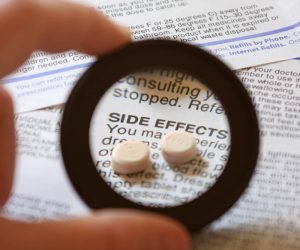40 Effects of Drug Addiction

What Is Drug Addiction?
Drug addiction is a complex disorder characterized by an overwhelming compulsion or need to continuously use substances. While there is a common misconception that drug addiction is a choice and that if someone wants to end their substance abuse, then they can decide to quit. However, the reality of drug addiction is that it is a disorder that impacts a person’s brain functioning and chemistry resulting in an inability to just quit your use of substances. Drug use often alters neurotransmitters such as serotonin and dopamine, which are responsible for mood stabilizing and “feel-good emotions.”
Without the presence of drugs in your system, it can create significant imbalances within your brain that can increase relapse behavior. To effectively treat drug addiction, you must have the proper support of addiction counselors and medical professionals that can provide adequate treatment to support physical and psychological healing. With the guided support of an addiction treatment program, you can safely remove any physical dependence on drugs while also addressing the underlying causes of addiction. You rarely find someone living with an addiction who intends to develop a substance use disorder.
Many will turn to substance abuse as a method to cope with difficult emotions or as an attempt to manage traumatic memories or trauma responses. While you may experience moments of reprieve through a brief escape from substance abuse, the use of drugs will often escalate your emotions and make life become unmanageable. Addressing your root causes of addiction through an addiction treatment program will allow you to heal from your past to create a strong foundation for your future in addiction recovery.
15 Signs of Drug Addiction
Drug addiction comes in many forms, whether it be illicit street drugs or prescription drugs. Regardless of the type of drug that you are addicted to, there are common signs and indicators that your use of substances has developed into an addiction including the following:
- Changes in physical appearance such as weight changes or changes in personal hygiene maintenance
- Experiencing problems in your relationships due to your substance abuse
- The decline in performance at work or school
- Loss of interest in activities that once brought you joy
- Experiencing financial problems such as an inability to maintain regular bill payments or spending the majority of your money on substances
- Changes in social circles to one that is centered around substance abuse
- Developing a tolerance to your substance of choice results in you having to use more to reach the same desired effect
- Engaging in high-risk behaviors or activities while using drugs such as driving while impaired
- Experiencing withdrawal symptoms when you stop using drugs
- Exhibiting physical or psychological impacts due to your substance abuse
- When you are not using drugs, experiencing severe cravings for drugs
- Isolating from loved ones or friends to engage in substance abuse
- Hiding or lying about your substance abuse to others
- Inability to control how much you use or attempt to limit the number of drugs you use but finding failed attempts at doing so
- Turning to drugs as a way to cope with emotions or challenging situations
Check out a list of musicians who died from drugs:
40 Effects of Drug Addiction
Drug addiction is a full-body disorder that impacts individuals’ lives in many aspects. To effectively heal from drug addiction, individuals must be provided with an effective treatment that offers a whole-person integrated approach to healing to foster long-term sobriety. Drug addiction can have the following effects on a person:
Physical:
- Physical tolerance developed
- Tremors or shakiness
- Changes in physical appearance such as weight loss or gain
- Yellowing of the skin or eyes
- Persistent coughing
- Heart complications
- Fatigue
- Flu-like symptoms due to drug withdrawal
- Chest pain
- Liver complications or deterioration
- Stomach aches or pains
- Fever
- Heart attack
- Stroke
- Coma
- Overdose
- Death
Mood
- Irritability
- Depression
- Anxiety
- Aggression
- Agitation
- Erratic mood swings
- Suicidal ideation, thoughts, or behaviors
- Hopelessness
Psychological:
- Problems with memory
- Confusion
- Hallucinations
- Paranoia
- Delusions
- Violent behaviors
- Psychosis
- Thoughts of self-harm or harming others
Behavioral:
- Stealing money to buy drugs
- Lying or hiding your substance abuse
- Experiencing legal problems due to your drug addiction
- Declining performance in your school or work
- Avoiding friends or family abuse drugs
- Acting recklessly or engaging in high-risk behaviors
- Changes in normal behaviors or acting out of character
When to Seek Help for Drug Addiction
If you have been living with an active drug addiction, you have undoubtedly had thoughts about what life could be if you were to quit using drugs and live a life of sober living. There are often questions about whether you can quit abusing drugs on your own and if you need the help of an addiction treatment program. If you have had thoughts about quitting drugs or attempted to quit using drugs on your own but experienced failed attempts at doing so, reaching out for help to quit drugs through an addiction treatment program will be beneficial to make your journey for addiction recovery to be successful.
Knowing when it is time to reach out for help through an addiction treatment program will depend on each individual person. If you have begun to notice that your drug abuse has begun to have effects on your day-to-day life and impact your relationships with others, or if you are exhibiting signs or symptoms of drug addiction as indicated above, it is often an indicator that your substance abuse has become a concern for you. If you identify that your drug abuse has progressed to a point where you are concerned about the effects of your drug addiction, you could benefit from the support of expert addiction treatment counselors and medical professionals that will ensure that you are successful in your journey of healing and addiction recovery.

WhiteSands Alcohol & Drug Rehab: A Premier Place to Beat Drug Addiction
Overcoming your drug addiction is possible, and at WhiteSands Alcohol and Drug Rehab we offer patients a comprehensive treatment program that is centered around your unique needs for healing and personal growth. We understand the individual needs of each patient within addiction treatment and that every patient has unique reasons for substance abuse that need to be addressed through various addiction therapy approaches.
Our premier addiction treatment center incorporates a variety of treatment methods that will support you in healing from your underlying causes of addiction, overcoming any physical dependence on drugs, and developing the life skills and tools for relapse prevention that will ensure you have long-term success in addiction recovery. Our knowledgeable and compassionate team will be with you every step of the way as you go through the life-changing journey of addiction treatment and will provide you with an individualized treatment plan that will target your specific needs and goals for addiction treatment and healing. Our holistic healing methods will enable patients to heal from drug addiction within their bodies, mind, and spirit.
Contact WhiteSands Alcohol and Drug Rehab today to learn more about the customized treatment programs we can create for you and support you in getting on the road to recovery.
If you or a loved one needs help with abuse and/or treatment, please call the WhiteSands Treatment at (877) 855-3470. Our addiction specialists can assess your recovery needs and help you get the addiction treatment that provides the best chance for your long-term recovery.
